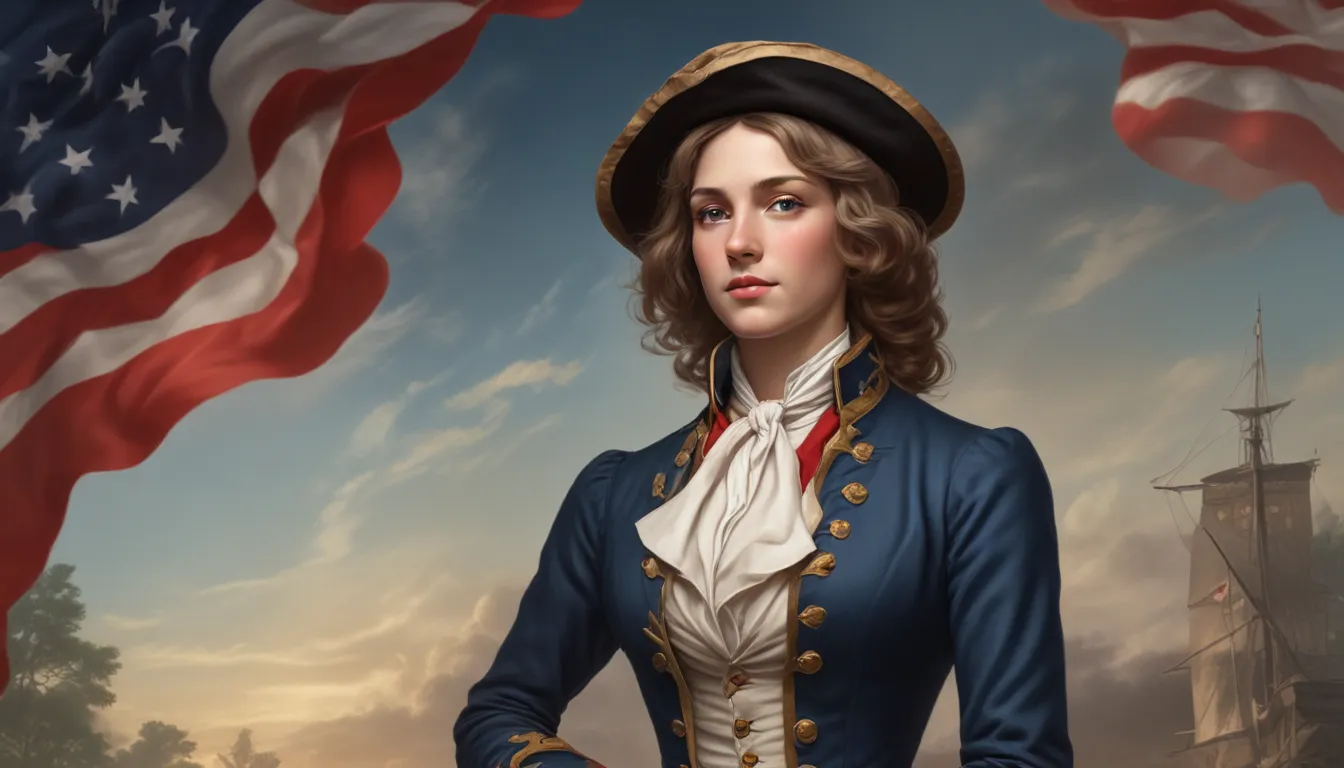The images in our articles may not match the content exactly. They are used to grab your attention, not to show the exact details in the text. The images complement the text but do not replace it.
Have you ever heard of Deborah Sampson, the courageous woman who disguised herself as a man to fight in the American Revolutionary War? Her remarkable story is filled with twists and turns that showcase her bravery and determination in breaking gender barriers. Join us on a journey through time as we uncover 20 fascinating fun facts about Deborah Sampson that shed light on her extraordinary life and legacy.
Who Was Deborah Sampson?
Deborah Sampson was born on December 17, 1760, in Plympton, Massachusetts, and stood out as a revolutionary figure in American history. What makes her story unique is not just her service in the Revolutionary War, but the courage and determination she displayed in defying societal norms.
- Pioneer for Women: Deborah Sampson was one of the first women to directly participate in military combat by enlisting under the alias “Robert Shurtlieff.”
Early Life and Challenges
Sampson’s early life was marked by challenges, growing up in a time when women’s roles were strictly defined in society. After her father abandoned the family, her mother, unable to care for all her children, placed Deborah in different households as an indentured servant.
- Hardships and Resilience: Despite her challenging circumstances, Sampson managed to learn how to read and write, skills that were not commonly taught to women during the 18th century.
Joining the Army
Motivated by patriotism and a desire for independence, Deborah Sampson made the bold decision to disguise herself as a man and enlist in the 4th Massachusetts Regiment of the Continental Army in 1782.
- Master of Disguise: Sampson meticulously crafted her male persona, going as far as creating makeshift bandages to conceal her chest, ensuring her true identity remained hidden.
- Acts of Bravery: Throughout her military service, Deborah excelled in combat and was recognized for her courage, participating in several significant battles during the Revolutionary War.
Challenges and Triumphs in the Military
Sampson’s time in the military was not without its obstacles. She faced injuries and even performed surgery on herself to remove a musket ball from her thigh to avoid revealing her true gender.
- Revelation: Her secret was eventually discovered in 1783 when she fell ill and received medical treatment from a doctor who promised to keep her identity confidential.
- Dedication and Resilience: Despite the risk of being exposed, Sampson continued to serve honorably for over a year, showcasing her unwavering dedication to her country.
Life After the War
After her military service, Deborah Sampson returned to civilian life, married Benjamin Gannett, and started a family. However, her story did not end there.
- Voice for Women: Deborah became one of the first women in America to embark on a lecture tour, sharing her experiences and advocating for women’s rights.
- Recognition and Honor: In 1792, Sampson was officially recognized for her service and granted a pension by the Massachusetts State Legislature, a rare acknowledgment for a woman of her time.
- Federal Acknowledgment: In 1805, she received a pension from the federal government, acknowledging her significant contribution to the Revolutionary War effort.
Legacy and Recognition
Beyond her lifetime, Deborah Sampson’s legacy continues to inspire and resonate with people across generations. She remains a symbol of courage and a pioneer for women in the military.
- Honors and Memorials: A statue in her honor stands in Plymouth, Massachusetts, serving as a lasting tribute to her bravery and service. Schools, organizations, and awards have been named after her, ensuring her story lives on to inspire future generations.
- Proclamation: In 1983, Governor Michael Dukakis declared May 23 as Deborah Sampson Day in Massachusetts, solidifying her place in history.
- Literary and Theatrical Recognition: Sampson’s life has been the subject of books, documentaries, and plays, keeping her memory alive for new audiences.
- Family Legacy: Her direct descendants continue to share her story, proud of their ancestor’s contributions to American history.
- Educational Significance: Academic studies often highlight Deborah Sampson’s life as an example of women’s roles in the military and early American society.
A Final Nod to Deborah Sampson’s Legacy
Deborah Sampson’s story is not just a collection of fun facts; it’s a powerful testament to courage, resilience, and the fight for equality. Her journey challenges traditional gender roles and exemplifies the unwavering determination of individuals who strive for freedom and justice. As we reflect on her life, let’s carry forward the spirit of bravery and perseverance she embodied, drawing inspiration from her challenges, triumphs, and undeniably courageous spirit.
Frequently Asked Questions
Q: What did Deborah Sampson do that made her famous?
A: Deborah Sampson earned her place in history by disguising herself as a man and fighting in the American Revolutionary War.
Q: How did Deborah manage to enlist in the army without being caught?
A: Clever and determined, Deborah crafted a convincing male alias and mastered the behaviors of men at the time, allowing her to go undetected for a considerable period.
Q: Did Deborah Sampson receive any recognition for her service?
A: Yes, she was honorably discharged from the army and later awarded a pension for her military contributions.
Q: What challenges did Deborah face after her military service?
A: Post-war, Deborah dealt with injuries, fought for her military pension, and became a speaker advocating for women’s rights.
Q: How did Deborah Sampson’s story come to light?
A: Her biography, written by Herman Mann in 1797, and her own public appearances helped spread her incredible tale.
Q: Why is Deborah Sampson considered a hero?
A: Sampson’s bravery and defiance of gender norms of her time make her a hero who inspired countless others.
Q: Are there any memorials or honors dedicated to Deborah Sampson?
A: Yes, various memorials, honors, and even a day in her honor in Massachusetts commemorate her contributions and bravery.
Join us in Honoring Deborah Sampson’s Inspiring Legacy
Deborah Sampson’s story serves as a reminder of the power of determination and courage, transcending gender norms and societal barriers. Her impact on American history is profound, highlighting the strength and resilience of individuals who fight for their beliefs against all odds. As we delve into the past and uncover the remarkable life of Deborah Sampson, let’s celebrate her legacy and continue to draw inspiration from her unwavering spirit.






